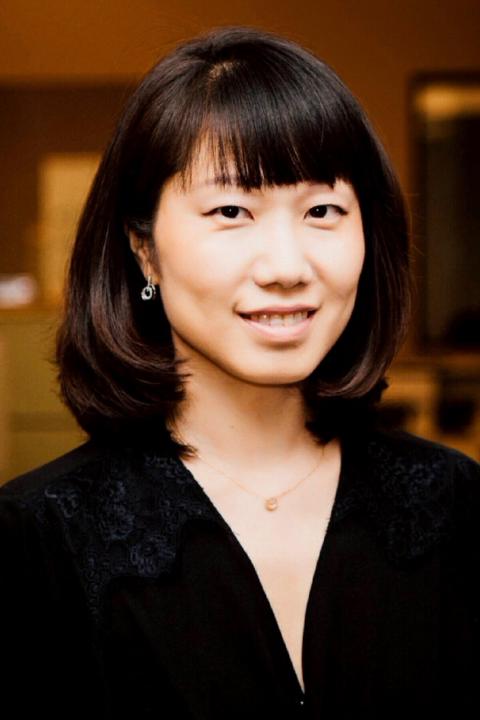Don't see what you're looking for?
Main Site
Berklee.eduCampuses and Schools
Yoon-Ji Lee
For media inquiries, please contact Media Relations
Yoon-Ji Lee creates music based on unconventional and nonlinear structures that focus on quickly transforming different languages, noises, gestures, textures, harmonies, and tone colors in both acoustic and electroacoustic mediums. Her most recent works have engaged with visual arts, dance, literature, and intercultural influences. Her music has been performed in Korea and in the U.S. by Argento Ensemble, International Contemporary Ensemble, JACK Quartet, Mivos Quartet, and ensemble mise-en, among many others, and in music venues including New York City’s Merkin Concert Hall, the Stone at the New School, Chelsea Art Museum, and the Galerie Pangée in Montreal, Canada, as well as at the Sejong Center for the Performing Arts in Seoul. Her music has been broadcast by Korean National Music (Gugak) FM Radio.
Lee received the Jane Geuting Camp Fellowship from the Virginia Center for the Creative Arts (VCCA), the Henry M. MacCracken Fellowship from New York University (NYU), and the Patsy Lu Award from the International Alliance of Women in Music. She has participated in artist residencies at National Sawdust, VCCA, Brush Creek Foundation for the Arts, and Atlantic Center for the Arts. Her research includes psychoacoustics, improvisation, American experimental music, and intercultural music.
Lee received her Ph.D. in 2015 and her dissertation on Elliott Sharp’s "THEN GO," written for P’ansori and intonarumori, examines the unsettling and unsettled identities of intercultural music composition, and the previously understudied problems of intercultural performing and listening. Before coming to Berklee, Lee taught at NYU for seven years.
- Premieres by International Contemporary Ensemble (ICE), Argento Ensemble, JACK Quartet, Kammerensemble Neue Musik Berlin, Mivos Quartet, and Talea Ensemble
- Former faculty at New York University
- Artist residencies include Summer Labs at National Sawdust, the Brush Creek Foundation the Virginia Center for the Creative Arts, and the Atlantic Center for the Arts
- Commissioned by ensemble mise-en, Washington Square Contemporary Society, loadbang ensemble, Equilibrium Ensemble, Dinosaur Annex Music Ensemble, and Either/Or Ensemble
- Festivals and conferences include the Society for Electro-Acoustic Music in the United States conference, the New York City Electroacoustic Music Festival, the New Music Miami ISCM Festival, and the mise-en 2014 Music Festival
- Presented the paper "Intercultural Listening in Elliott Sharpe’s 'THEN GO,' for P’ansori and 16 Intonarumori" at Society for Ethnomusicology Conference
- Jane Geuting Camp Fellowship, Virginia Center for the Creative Arts
- Patsy Lu Award, the International Alliance for Women in Music
- Residency Fellowship, Atlantic Center for the Arts
- Henry M. MacCracken Fellowship, New York University
- Ph.D., New York University
- M.M., New England Conservatory
- B.M., Ewha Womans University
"In the Berklee music program, the goal of my teaching is to prepare our students not only to have a solid background in music theory, but also to experience an enlightened approach in how they understand, construct, analyze, and create the organization of music in each specific style. I provide the experiences of how to build a model of different kinds of sound. The ultimate goal is that students can remember and extend this experience and apply it to their own musical thinking and practices as they learn how to own and manage their musical knowledge."
"In my composition lessons, I try to introduce and connect the student’s work and effort into the current contemporary musical world. On a more personal level, I seek to understand what a student needs musically, emotionally, and intellectually in order to help them to find their unique way to express their musical ideas with the most interesting compositional languages that they want to take. In order to do that, students need to be exposed to a diverse background of music, to have connections with music production in their field, and to have an open mind to all those influences. I would urge them to develop their creativity through a global awareness of contemporary musical works. From this experience, I hope that they can grow themselves as a confident musician and expand their own musical world, discovering and implanting their own voice in their music creation."
"In general, I believe that the music classroom provides opportunities for students to learn how to be connected, to interact, and to collaborate musically with one another. I want them to recognize the classroom as a place to engage with a small musician’s community in which they need to help, respect, support, and listen to each other’s knowledge as well as their works."
Get More Information
By requesting information from Berklee, you will receive emails about our educational programs, student resources, facilities, and more based on your selections.
Thank you for requesting information.
Check your inbox for an email from Berklee. You will start to receive program information, updates, and deadline reminders.
Find the program that's right for you with Berklee's Find Your Program tool.

